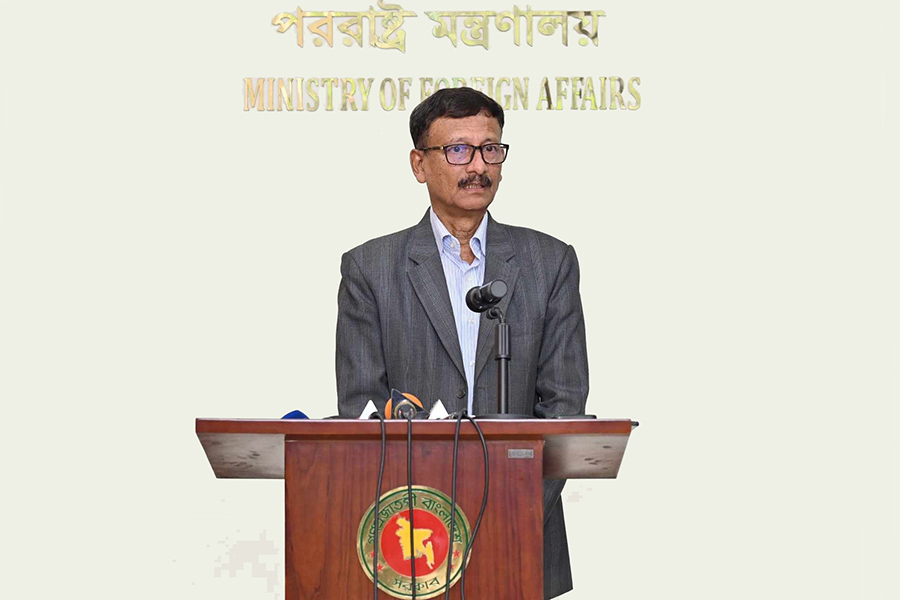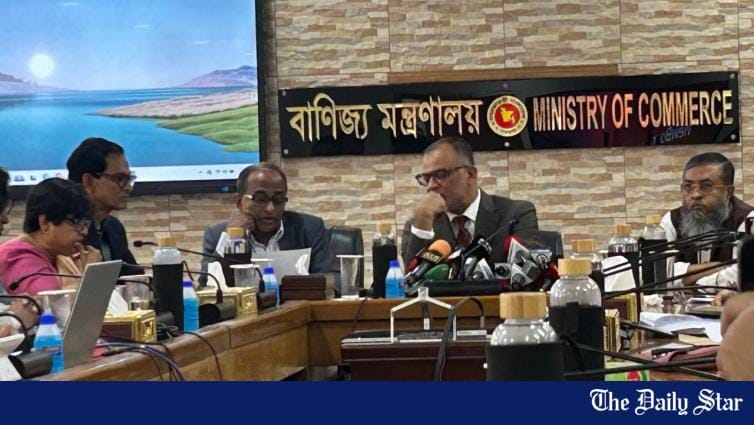- Copy to clipboard
- Thread starter
- #521
Saif
Senior Member
- Joined
- Jan 24, 2024
- Messages
- 15,311
- Reaction score
- 7,802
- Points
- 209
- Nation

- Residence

- Axis Group


Bangladesh wants good ties with India: Adviser
Md Touhid Hossain, Foreign Affairs Adviser to the interim government, said on Thursday that no one, including himself or anyone within the government, has ever stated that they do not want good relations with India. He made the remark in response to a journalist’s question at the Ministry of
Bangladesh wants good ties with India: Adviser
FE ONLINE REPORT
Published :
Jul 24, 2025 19:56
Updated :
Jul 24, 2025 19:56

Md Touhid Hossain, Foreign Affairs Adviser to the interim government, said on Thursday that no one, including himself or anyone within the government, has ever stated that they do not want good relations with India.
He made the remark in response to a journalist’s question at the Ministry of Foreign Affairs on Thursday evening.
When asked whether India sending a special medical team to Dhaka to assist with treatment for those injured and burned in the recent fighter jet crash at Milestone School and College in Uttara signalled any diplomatic coldness between the two countries, Touhid Hossain replied, “We want good relations with India. We want a good working relationship based on mutual respect. Our position on this has been consistent. No one has ever said — neither I nor anyone in this government — that we don’t want good relations with India.”
He added, “We have extended all necessary courtesies. After the incident (the aircraft crash), several countries expressed interest in helping, and India was one of them. We consulted the burn unit regarding their needs and conveyed those to India. In response, they sent two doctors and a nurse. They will provide whatever support they can. You see, people-to-people contact between the two countries has always been positive.”
On Wednesday evening, a three-member Indian medical team arrived in Dhaka to assist with the treatment of burn victims from the incident.
When asked about the foreign policy priorities of the current government, Touhid Hossain said, “We have not done anything to harm our relationships with any country. Maintaining good relations with neighbours has been a key focus, but that doesn’t mean we have become overly dependent on anyone. We have prioritised our national interests. Our goal with India is to maintain good relations, but there must be mutual respect and a conducive environment for cooperation.”
Responding to a question, he said the Chinese Ambassador in Dhaka recently assured him that the dam on Brahmaputra River by China won’t affect Bangladesh.
They have assured us, he added.
Replying to a question, he said that the setting up of the mission office of the UN Human Rights Council will be positive for Bangladesh.
The decision was taken in the interest of the people of the country, he noted.
FE ONLINE REPORT
Published :
Jul 24, 2025 19:56
Updated :
Jul 24, 2025 19:56
Md Touhid Hossain, Foreign Affairs Adviser to the interim government, said on Thursday that no one, including himself or anyone within the government, has ever stated that they do not want good relations with India.
He made the remark in response to a journalist’s question at the Ministry of Foreign Affairs on Thursday evening.
When asked whether India sending a special medical team to Dhaka to assist with treatment for those injured and burned in the recent fighter jet crash at Milestone School and College in Uttara signalled any diplomatic coldness between the two countries, Touhid Hossain replied, “We want good relations with India. We want a good working relationship based on mutual respect. Our position on this has been consistent. No one has ever said — neither I nor anyone in this government — that we don’t want good relations with India.”
He added, “We have extended all necessary courtesies. After the incident (the aircraft crash), several countries expressed interest in helping, and India was one of them. We consulted the burn unit regarding their needs and conveyed those to India. In response, they sent two doctors and a nurse. They will provide whatever support they can. You see, people-to-people contact between the two countries has always been positive.”
On Wednesday evening, a three-member Indian medical team arrived in Dhaka to assist with the treatment of burn victims from the incident.
When asked about the foreign policy priorities of the current government, Touhid Hossain said, “We have not done anything to harm our relationships with any country. Maintaining good relations with neighbours has been a key focus, but that doesn’t mean we have become overly dependent on anyone. We have prioritised our national interests. Our goal with India is to maintain good relations, but there must be mutual respect and a conducive environment for cooperation.”
Responding to a question, he said the Chinese Ambassador in Dhaka recently assured him that the dam on Brahmaputra River by China won’t affect Bangladesh.
They have assured us, he added.
Replying to a question, he said that the setting up of the mission office of the UN Human Rights Council will be positive for Bangladesh.
The decision was taken in the interest of the people of the country, he noted.







